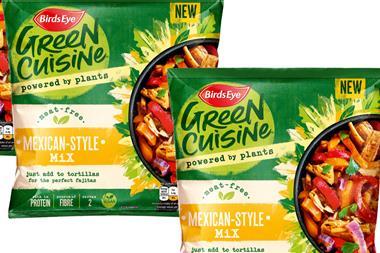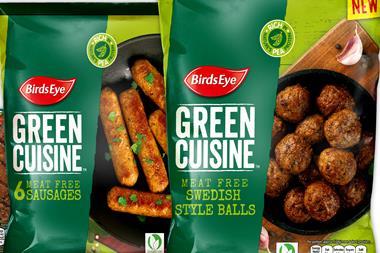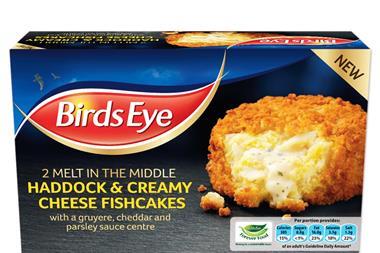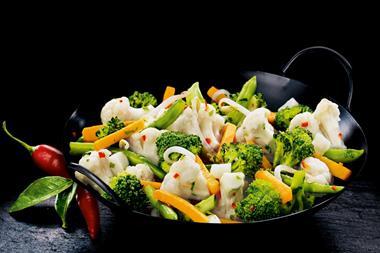The ink is not yet dry on Nomad Foods’ €2.6bn acquisition of Birds Eye owner Iglo Group but speculation is already rife over who the hungry US tycoons behind the deal have their sights on next.
Frozen food giant Findus, the subject of numerous sale and IPO rumours this year, seems a “natural fit”, according to one analyst, especially given Iglo already owns the brand in Italy.
However, with Young’s Seafood (owned by Findus) and Birds Eye together approaching an almost 50% market share in the UK, Findus would likely need to offload the brand here before any deal got past the Competition & Markets Authority, which has shown with the Poundland/99p Stores and Pork Farms/Kerry Foods mergers that it is not shy of launching investigations.
The private equity owners of Findus - Lion Capital, Highbridge Capital Management and JP Morgan - would no doubt be keen to finally get the asset off their books for a healthy price. Lion purchased Findus for £1.1bn at the top of the market in 2008 as private equity groups bet on the frozen sector having a potential it failed to realise. “As signalled by Permira’s sale of Iglo after nine years of ownership, there is now plenty of scope for PE to bring their portfolios to market, having hung on to assets for much longer than normal during the recession,” says Robert Waldshmidt, consumer goods analyst at Liberum.
Listed play
Nomad was floated on the London Stock Exchange in April 2014, raising $500m on the back of a grand plan to build a group with a global reach in an underperforming sector.
“For years this has been the province of PE but the emergence of a listed investment vehicle to do this kind of consolidation is no surprise as there is considerable opportunity for pruning the portfolios of large-cap companies such as Unilever,” says Waldshmidt.
The US-based founders of Nomad, Noam Gottesman and Martin E. Franklin, also have a lot of form, Franklin in particular. Gottesman is the G in hedge fund GLG Partners. Franklin is the son of Sir Roland Franklin, long-time partner of infamous corporate raider/asset stripper James Goldsmith. But he’s proven far more entrepreneurial than his father, building consumer products company Jarden - which sells Breville sandwich toasters, coffee grinders, kitchen jars, babies’ dummies, skis, baseball equipment etc from a $120m jar maker into a group with 120 companies which is worth $10bn and has created $5bn for shareholders in the past half-decade, with the group’s market value more than tripling from 2010 to 2014. He also started Platform Acquisition Holdings to do the same thing but buying speciality chemical companies.
So why frozen? And why use Birds Eye Iglo as the building block for this consolidation play? According to a source close to the tycoons, they chose frozen as it was “resilient but also fragmented”, with abundant opportunities for further M&A.
It was impeccable timing as the £36.5bn mega-merger of Heinz and Kraft in March has kicked off what dealmakers predict is the start of a wave of consolidation in grocery. The pursuit of cost synergies would “very probably” include an assessment of which parts of the Kraft-Heinz business were underperforming or non-core, according to Trefor Griffith, head of food and beverage at Grant Thornton: “Kraft’s meals and desserts products and Heinz’s frozen brands are both considered possible candidates for divestment.”
Nestlé is also nearing the sale of wholesaler Davigel (which includes a frozen food unit), having already divested its Spanish La Cocinera frozen meals business to Findus, and Unilever is continuing to shape its portfolio with the sale of non-core assets, and the spin-off of its spreads business.
“Portfolio optimisation is far from complete and we expect the trend will continue to be an important driver for transaction activity this year,” Griffith says.
“There is a need for consolidation in a number of sub-sectors,” adds Chris Stott, KPMG transaction services partner. “These global funds have the ability to change corporate culture, and put much-needed cash to work around capacity, efficiency and growth. It could kickstart a consolidated roll-up in the frozen sector.”
However, despite the glut of opportunities, Nomad face a number of challenges that could yet scupper their ambitions for global dominance. For a start, consumer foods giants such as Nestlé, Unilever and Kerry are not putting their brightest and best frozen brands on the auction block.
And second, growth in the frozen market is clearly hard to come by, with Iglo sales down 1.9% in 2014 and Findus sales dipping 4.9% in its first quarter to 27 December. The value of the frozen fish sector in the major retailers across the UK also fell 4% year on year in 2014 [Nielsen].
In terms of Birds Eye, Andrew Cosgrove, global consumer products lead analyst at EY, believes its appeal lies in the shift to omni-channel: “Frozen foods are at a disadvantage due to their placement in store and the merchandising limitations of freezers. Online levels the playing field. This will create significant opportunity for those companies that can deliver consumer relevant products.”
Indeed a CheckoutSmart survey puts Birds Eye second only to Coca-Cola in a table of the 100 top grocery brands online, capturing 80p of every £100 spent. “It shows the potential and also the power of our brand online,” adds UK and Ireland MD Andy Weston-Webb. “You can get to consumers very early in the shopping mission and tailor your offer. My sense is that online is one of the key drivers of growth for the future of the category.”



















No comments yet